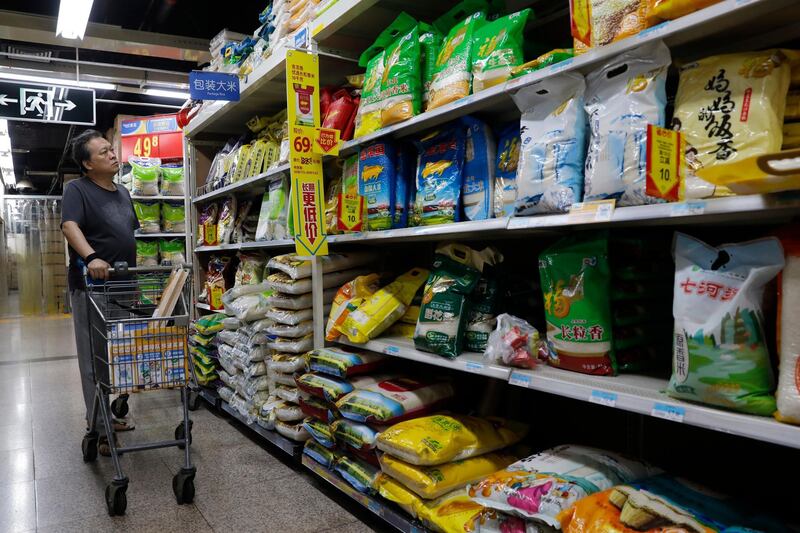US President Donald Trump slapped new tariffs on an additional $200 billion (Dh734.5bn) worth of Chinese goods, prompting a pledge from Beijing to retaliate.
On Monday, Mr Trump said he was levying a 10 per cent tariff increase on $200bn of Chinese imports starting September 24 and will increase the taxes to 25 per cent on January 1, 2019, escalating the trade war with the world’s second-largest economic power.
“Trump has declared a prolong war on China and once again he is not concerned about the consequences,” said Naeem Aslam, chief market analyst at Think Markets UK in London.
“Trump needs to understand that he is dealing with China, not with Iran or Turkey – a tit-for-tat reaction is an obvious one here. We are heading towards a major catastrophe. We expect the market participants to remain risk averse,” he said.
____________
Read more:
As Trump turns up heat, China starts to sweat
Donald Trump tells Apple to make products in the US
Asian markets sink on China-US tariff fears
____________
China has vowed not to be strong-armed into negotiations with Washington and will consider targeting American industry and farmers.
As part of China’s initial retaliation, Beijing said it was applying tariffs on $60bn worth of US goods, also effective from September 24.
Mr Trump had warned the US will impose tariffs on the remaining $267bn of Chinese imports if China took retaliatory action.
Mr Aslam said Beijing is unlikely to win the war when considering that the total value of US imports of Chinese goods in 2017 was $505bn and total Chinese imports of US goods last year was worth $130bn.
Market reaction was muted yesterday with Chinese stocks gaining. The Shanghai Composite Index gained 1.8 per cent, while the smaller-cap Shenzhen Composite Index rose about 1.7 per cent.
Hong Kong stocks also gained with the Hang Seng index increasing 0.6 per cent.
“Despite the muted response of global stock markets … investors might be bracing themselves for further trade conflict fuelled volatility in the markets,” said Mihir Kapadia, chief executive of Sun Global Investments.
While Chinese retaliation appeared likely, the overall impact on growth and inflation seems manageable at this point, although the Chinese are cognisant of the impact on their country’s economic growth and are already taking offsetting measures, including loosening credit, lowering interest rates, supportive fiscal policies and also allowing its currency to depreciate, the Bank of Singapore said in a note to clients.
China is likely to put tariffs on oil and liquefied natural gas imports from the US, said Norbert Rucker, head of macro and commodity research at Julius Baer.
“The trade dispute escalation adds to the negative impact the emerging market turmoil bears on commodity demand,” said Mr Rucker.







